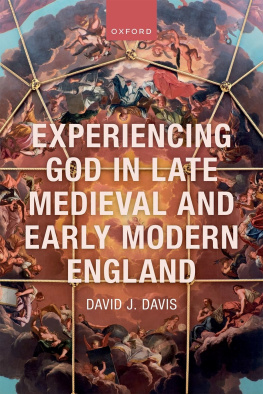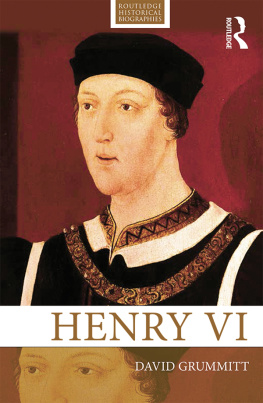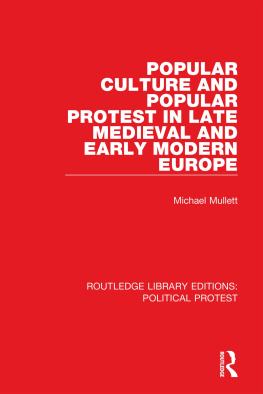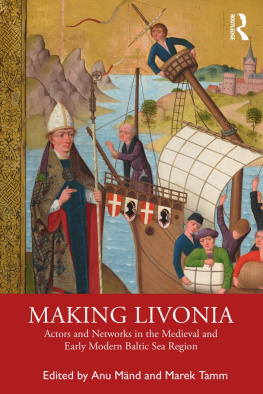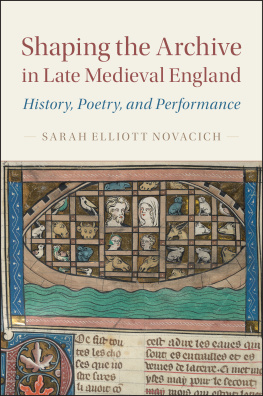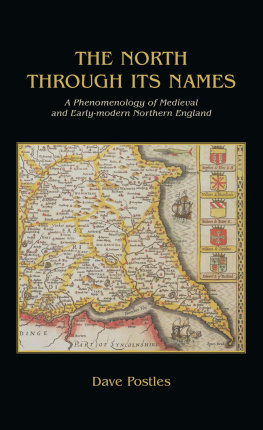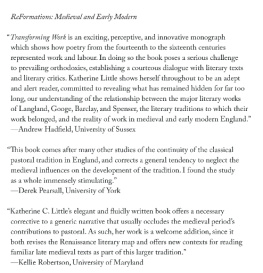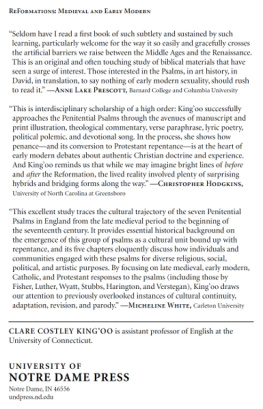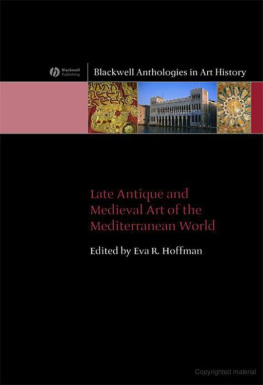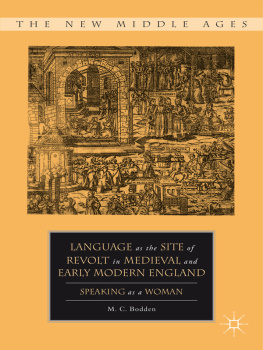David J. Davis - Experiencing God in Late Medieval and Early Modern England
Here you can read online David J. Davis - Experiencing God in Late Medieval and Early Modern England full text of the book (entire story) in english for free. Download pdf and epub, get meaning, cover and reviews about this ebook. year: 2022, publisher: OxfordUP, genre: Religion. Description of the work, (preface) as well as reviews are available. Best literature library LitArk.com created for fans of good reading and offers a wide selection of genres:
Romance novel
Science fiction
Adventure
Detective
Science
History
Home and family
Prose
Art
Politics
Computer
Non-fiction
Religion
Business
Children
Humor
Choose a favorite category and find really read worthwhile books. Enjoy immersion in the world of imagination, feel the emotions of the characters or learn something new for yourself, make an fascinating discovery.
- Book:Experiencing God in Late Medieval and Early Modern England
- Author:
- Publisher:OxfordUP
- Genre:
- Year:2022
- Rating:4 / 5
- Favourites:Add to favourites
- Your mark:
- 80
- 1
- 2
- 3
- 4
- 5
Experiencing God in Late Medieval and Early Modern England: summary, description and annotation
We offer to read an annotation, description, summary or preface (depends on what the author of the book "Experiencing God in Late Medieval and Early Modern England" wrote himself). If you haven't found the necessary information about the book — write in the comments, we will try to find it.
Experiencing God in Late Medieval and Early Modern England — read online for free the complete book (whole text) full work
Below is the text of the book, divided by pages. System saving the place of the last page read, allows you to conveniently read the book "Experiencing God in Late Medieval and Early Modern England" online for free, without having to search again every time where you left off. Put a bookmark, and you can go to the page where you finished reading at any time.
Font size:
Interval:
Bookmark:


Great Clarendon Street, Oxford, OX2 6DP, United Kingdom
Oxford University Press is a department of the University of Oxford. It furthers the Universitys objective of excellence in research, scholarship, and education by publishing worldwide. Oxford is a registered trade mark of Oxford University Press in the UK and in certain other countries
David J. Davis 2022
The moral rights of the author have been asserted
First Edition published in 2022
Impression: 1
All rights reserved. No part of this publication may be reproduced, stored in a retrieval system, or transmitted, in any form or by any means, without the prior permission in writing of Oxford University Press, or as expressly permitted by law, by licence or under terms agreed with the appropriate reprographics rights organization. Enquiries concerning reproduction outside the scope of the above should be sent to the Rights Department, Oxford University Press, at the address above
You must not circulate this work in any other form and you must impose this same condition on any acquirer
Published in the United States of America by Oxford University Press
198 Madison Avenue, New York, NY 10016, United States of America
British Library Cataloguing in Publication Data
Data available
Library of Congress Control Number: 2022931635
ISBN 9780198834137
ebook ISBN 9780192570864
DOI: 10.1093/oso/9780198834137.001.0001
Printed and bound by
CPI Group (UK) Ltd, Croydon, CR0 4YY
Links to third party websites are provided by Oxford in good faith and for information only. Oxford disclaims any responsibility for the materials contained in any third party website referenced in this work.
To Nan and Wes
The idea for this book began with a scattered collection of conversations held on both sides of the Atlantic. Beginning with a question about an odd, recurring phrase in Protestant commentaries, the book slowly mushroomed over the course of eight years into a reassessment of large swathes of English intellectual and religious culture.
This journey has indebted me to many individuals, two of whom I owed a great deal long before this project began. Alexandra Walsham and the late Margaret Aston commented on different aspects of my embryonic considerations and sent me off on especially productive trains of thought. Laela Zwollo, Garthine Walker, Randy Hatchett, Jennifer Evans, Liam Temple, and the anonymous readers at Oxford University Press offered important suggestions at significant moments in my research. Their direction proved invaluable. Over many coffees and other beverages, my colleagues at Houston Baptist University have been a source of intellectual refreshment, particularly the members of the Pantalogia workshop that suffered through draft chapters and working papers. Also, I owe a special thanks to my graduate studentsBecca, Camryn, Julia, Kathryn, Noah, Paige, Richard, Rocio, and Timfor trudging alongside me through four centuries of English religion in the early stages of my research. Finally, I am forever grateful to Lisa Carroll-Davis, David Grubbs, Tyler McNabb, Adam Morton, Cress Ann Posten, Emily Stelzer, Joel Swann, and Jerry Walls, who read portions of the manuscript before it was finalized. Their comments not only contributed key insights I would not have reached on my own, but also encouraged me in the overall narrative.
The research for this book was supported by generous fellowships from the Renaissance Society of America, the Huntington Library, and the Johannes a Lasco Bibliothek, as well as a semester-long sabbatical from my teaching responsibilities at HBU. Much of the book was written during the Covid-19 pandemic, which severely limited my ability to travel and access archives in person. As such, librarians and archivists played an even more significant role in getting the materials I needed. The staff at the Huntington Library, Houghton Library (Harvard), the Bodleian Library, Cambridge University Library, the University of Illinois Urbana-Champaign Library, the Rijksmuseum (Amsterdam), the Lanier Theological Library (Houston), and the Dunham Bible Museum (Houston) have been incredibly patient with my requests. Their efforts on behalf of scholarship in a time of global pandemic have been inspiring.
Between the genesis and completion of this project, two of my closest family members departed this life. They both were wellsprings of encouragement, kindness, and joy, and they are dearly missed. I dedicate this book to their memory.
The revelation goes on; it is their witness and yet their witness to an original source which forms the revelation.
(Richard Swinburne, Revelation)
The ceiling of the Sheldonian Theatre in Oxford boasts an early baroque painting of Truth descending from heaven. Truth brings the light of understanding to the Arts and Sciences, which are personified as Muses. Completed in 1668 by London artist Robert Streater, the Sheldonians ceiling celebrated both the completion of the new theatre and the Restoration of the monarchy under Charles II. The traditional notion of truth as a gift from God, as a form of divine revelation, aligned very nicely with the reaffirmation of the divine right of kings in Caroline England. The painting also highlights the epistemic importance placed upon such revelation, which most people considered to be the ultimate source for all human science and philosophy. Thus, a contemporary poetic encomium of the painting explained that Truth disperse(s) abroad the enemies of understanding, Envy Rapine and Brutality. Like the sun, it is difficult (and dangerous) to look directly upon truth, but it provides light to everything else: So bright Truth seems obscurd to us below, / But every figure yields the brighter shew.
Compared to much of the art of the eighteenth century, Streaters painting presents a very different way of thinking about Truth. The work of artists like Joseph Wright of Derby often depicted the light of Truth (or discovery) pouring out from a distinctly terrestrial source. Truth, via divine revelation, was a religious experience in that it involved the communion between God and human beings. It was also an epistemic experience that expanded human understanding, giving insight that could not have been obtained otherwise.
The idea for this book began with a curiosity. I found myself mentally glossing over a popular phrase that Protestant commentators used to describe the biblical prophets experiences of divine revelation, which were often described in terms of being ravished, rapt, or rapt up in the Spirit. I knew that similar language was present in the sensual poetry of the period as well as accounts of contemplative devotion. As I explored the popularity of such language, I began to wonder if this was more than a rhetorical turn-of-phrase, if there was a more robust discourse of divine revelation. Not only did the language appear in an unusual number of different (and different kinds of) texts, but it also possessed a commonly understood meaning about the physical and metaphysical experience that someone had when they were believed to have encountered God. Taken together, the examples present what the philosopher Owen Barfield once described as a collective representation of late medieval and early modern English culture and thought. For Barfield, collective representations were commonly held ways of understanding and explaining human experiences, consisting of individual perceptions as well as preconceived ideas, biases, and beliefs that contribute to our making sense (and meaning) of our perceptions. Barfield explained, Like the words of a language are common to the members of a society, collective representations are transmitted from one generation to another, developing and changing only gradually in the process. Barfield believed that, at a fundamental level, collective representations provided the primary means through which human beings experience the world. While an individuals sense perception is theirs alone, the ways that we understand and make meaning out of our perceptions is most often done through shared representations about reality (even if the meaning we are making challenges those representations). Barfields idea of collective representations is helpful in understanding how accounts of divine experiences corresponded, in many respects, with one another over a long period of English history. As we will see in the following chapters, the ways that late medieval and early modern English people understood the experience of divine revelation was built around certain textual and pictorial signs, which provided important discursive markers in identifying divine revelation. These signs not only supported certain presuppositions about how humans interacted with God, but also provided important means of legitimizing and delimiting what was and what was not considered to be an experience of God.
Font size:
Interval:
Bookmark:
Similar books «Experiencing God in Late Medieval and Early Modern England»
Look at similar books to Experiencing God in Late Medieval and Early Modern England. We have selected literature similar in name and meaning in the hope of providing readers with more options to find new, interesting, not yet read works.
Discussion, reviews of the book Experiencing God in Late Medieval and Early Modern England and just readers' own opinions. Leave your comments, write what you think about the work, its meaning or the main characters. Specify what exactly you liked and what you didn't like, and why you think so.

